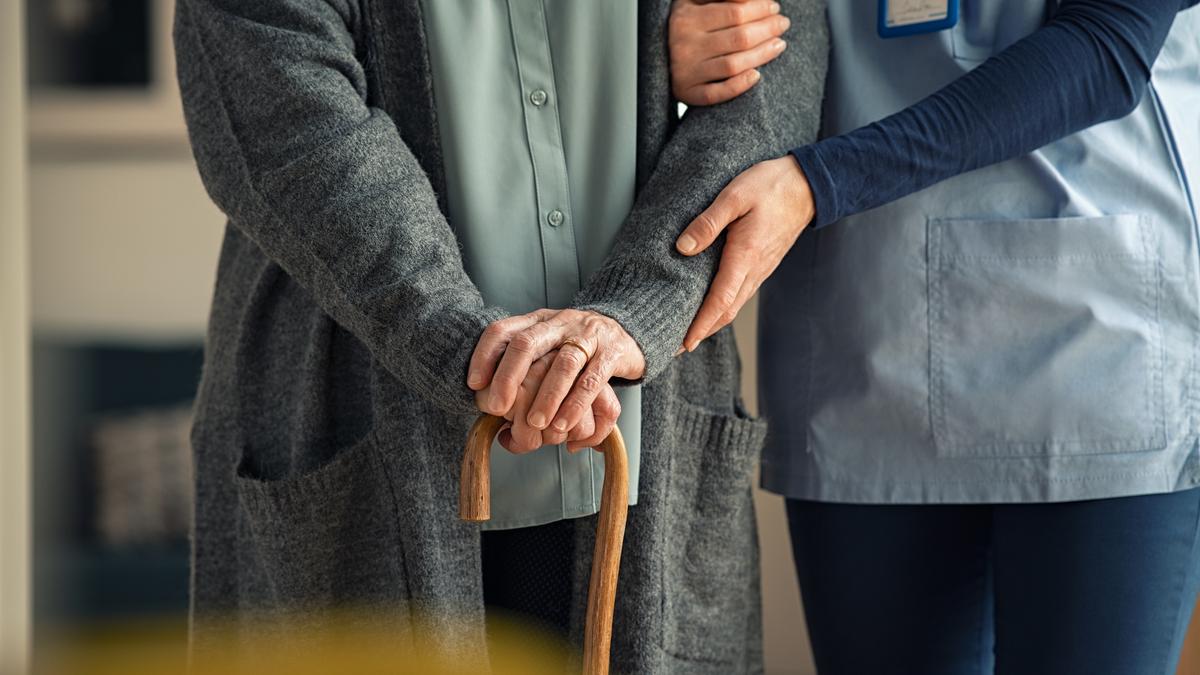
Old-age homes should be viewed as spaces where the elderly can live peacefully, surrounded by peers, rather than as institutions for the abandoned.
| Photo Credit: Getty Images
Change is a constant social phenomenon, and this holds true for the evolving Indian family system. As Indian culture becomes more open to global influences, traditional family structures have shifted. While this openness has empowered women and lower castes by freeing them from traditional constraints, it has led to a weakening of family ties. As younger generations embrace personal freedom and independence, the elderly are often marginalised and isolated. This period of change calls for reflection on how we manage and care for our ageing population.
India is currently undergoing a transitional phase that requires a revaluation of how we care for the elderly. Though various schemes exist for the elderly, they often fall short in ensuring dignity and comfort. Beyond policies, society must adopt a collective attitude that prioritises respect and care for the elderly. Their well-being is vital for their peace of mind and the stability of future generations.
In the traditional joint family system, the elderly were revered and played crucial roles in decision-making. They were the stewards of wisdom, offering guidance to younger family members. In contrast, today’s youth, engrossed in digital lives, are often disconnected from the older generation. The elderly, meanwhile, face physical, mental, and economic challenges with little support. The question arises: does society not have a responsibility to ensure that the final years of life are lived with dignity and comfort for those who can no longer care for themselves?
Fragmented families
The rise of individualism, linked to Western influences, has fragmented families. Families have become smaller, and the collective responsibility of caring for the elderly has weakened. While these changes may be inevitable, they raise an important question: how can we prepare for old age without burdening our children or society? Should we not focus on fostering an environment where the elderly can live independently and with dignity?
The Indian family system has long emphasised treating the elderly with love and respect. However, is it fair to blame children for neglecting their parents? Instead of blaming others, we must realise that this responsibility should be internalised voluntarily. The most effective way to face old age is to prepare for it — both mentally and physically — rather than relying entirely on others. By doing so, we can live a more autonomous and fulfilling life.
The adage “Don’t make a property for your children; make them assets for themselves” offers valuable wisdom. Often, parents burden their children with unfulfilled dreams, expecting them to live up to unrealistic aspirations. This pressure strains relationships and creates emotional distance. The elderly must mentally prepare for ageing by accepting that raising children should be for personal fulfilment, not as a means of future dependence. Internalising this wisdom helps approach old age with peace and dignity.
Ageing naturally brings physical challenges, but regular exercise and a balanced diet can prevent many age-related illnesses. By taking care of physical health during working years, individuals can maintain independence and reduce the need for external care in later years.
Financial independence is essential for ageing with dignity. Having sufficient savings allows the elderly to live without relying on others. This is particularly important for elderly women, who often face financial difficulties in their later years. Retaining control over finances enables them to live confidently and free from financial insecurity.
Old-age homes should be viewed as spaces where the elderly can live peacefully, surrounded by peers, rather than as institutions for the abandoned. Redefining these facilities ensures that those without family support can still live fulfilling lives. They offer companionship and care, providing an alternative to the traditional family setup.
In conclusion, as the Indian family system evolves, it is crucial to address the needs of the elderly. Mental preparation, physical health, financial security, and redefining old age homes are essential steps in creating a society that respects and cares for its elderly population. This shift is necessary not just for the well-being of the elderly but also for the future of our society.
Published – March 02, 2025 04:00 am IST
